Get Private 1 on 1 Online
Geotechnical Engineering Tutor
(A Civil Engineering Subject)
Ace your Exams & Homework
Top Tutors • Top Scores!
24X7 • Affordable • Online Tutoring & Homework Help Services
Geotechnical Engineering Tutors
Neeraj K
Student’s Rating 4.93/5

Geotechnical Engineering, Structural Engineering, Structural analysis and other Civil engineering subjects tutor
Mechanics of Materials
Ankesh J
Student’s Rating 4.86/5

Mechanics of Materials tutor
Tutor for Geotechnical Engineering Tutor, Structural Engineering, Structural analysis and other Civil engineering subjects
Jitendra S
Student’s Rating 4.92/5

Geotechnical Engineering Tutoring. (Structural Engineering, Structural analysis and other Civil engineering subjects as well)
Mechanics of Materials
Don’t compromise with your Grades!
Start getting in your Exams and Homework with an amazing tutor.
Geotechnical Engineering Tutoring
How MEB can help you with Geotechnical Engineering?
My Engineering Buddy provides top-quality online tutoring and homework help services for civil engineering specializations like geotechnical engineering. Our expert geotechnical tutors are just a click away from you for affordable virtual private tutorials. We offer help for almost all engineering subjects and much more.
We can help you improve your grades with concept lessons, exam preparation help, homework assistance, and project guidance.
About Geotechnical Engineering
What is geotechnical engineering?
Geotechnical engineering is the civil engineering specialization that deals with the behavior of earth materials from an engineering perspective. It utilizes the principles of rock mechanics and soil mechanics for finding engineering solutions to practical problems and situations. It is also called geotechnics.
Geotechnical engineers tackle the risks and hazards present in any civil engineering project due to an area’s soil, rocks, and other topographical elements. Geotechnical engineers assess the foundational stones and soil conditions in the project’s scope and find practical solutions for the project’s safety and sustainability.
Watch this YouTube video to know more about geotechnical engineering and soil mechanics.
What do geotechnical engineers do?
Geotechnical engineers evaluate rock, soil, groundwater sources, and manufactured materials. These components of an area’s topography interact with structural foundations, earth retention systems, and other civil engineering structures.
Geotechnical engineers perform thorough soil investigations to prevent foundation failure before building a new structure. These investigation results help determine the capacity and nature of the soil for a stable foundation.
A geotechnical engineer has the skills to assess ground risks and hazards. They work with their teams and professionals from other civil engineering sub-disciplines to find practical solutions to these issues.
Civil engineering and geotechnical engineering
From an educational and professional perspective, geotechnical engineering is one of the vital sub-disciplines of civil engineering. Geotechnical engineering specialization usually starts with a master’s degree in civil engineering.
As a civil engineering stream, geotechnical engineering focuses on the behavior and properties of naturally occurring geological materials in engineering systems. Because soil and rock are the most abundant and cheapest construction materials on Earth, they play a crucial role in the construction and performance of every type of civil engineering structure.
Geotechnical engineering students have broad civil engineering exposure. They further study advanced topics in geology like foundation engineering, soil and rock mechanics, slope stability, and computational mechanics.
Geotechnical engineers are engaged in the early phases of a civil engineering project as the geotechnical analysis is a vital component of the feasibility study of any proposed major civil engineering work. The due diligence carried out by geotechnics is one of the crucial deciding factors of a civil engineering project.
Geotechnics plays a crucial role in planning infrastructure projects such as buildings, roads tunnels, and other offshore and onshore constructions. Geotechnical engineers also assess load-bearing capacity, carry out relevant numerical calculations, check the deformation and settlement in human-made structures, and analyze the stability of cliffs and slopes.
You may visit our online civil engineering tutoring page to know more about the tutoring services for core civil engineering subjects and their specializations.
Significant applications of geotechnical engineering
- Dam engineering
- Foundation engineering
- Retaining walls
- Geoenvironmental engineering
- Earthquake engineering
- Slope stability
- Geosynthetics
- Tunnel engineering
- Pavement engineering
Geotechnical engineering topics
- Soil and rock mechanics
- Chemical and physical properties of soil
- Soil-structure interaction
- Soil permeability and compaction
- Computational geomechanics
- Constitutive modeling
- Modeling groundwater flow with Darcy’s law
- Foundation and earth structures engineering
- Ground improvement
- Slope stability and landslide stabilization
- Soil compaction remediation methods
- Liquefaction of soils and earthquake engineering
- Soil compaction equipment
- Laboratory characterization of geomaterials and soil reinforcement
- Practical soil preservation methods
- Environmental geotechnics
- Using geosynthesis for erosion control
Geotechnical engineering textbooks
- Principles of Geotechnical Engineering by Braja M. Das, Khaled Sobhan. Publisher – Cengage Learning
- An Introduction to Geotechnical Engineering by William D. Kovacs, Robert D. Holtz, Thomas C. Sheahan. Publisher – Pearson
- Geotechnical Engineering – Principles and Practices by Donald Coduto, Man-chu Ronald Yeung, William Kitch. Publisher – Pearson
- In Situ Testing Methods in Geotechnical Engineering by Alan J. Lutenegger. Publisher – CRC Press
- Geotechnical Engineers Portable Handbook by Robert Day. Publisher – McGraw Hill
- Geotechnical Engineering Calculations and Rules of Thumb by Ruwan Abey Rajapakse. Publisher – Butterworth-Heinemann
- Geotechnical Engineering – Principles and Practices of Soil Mechanics and Foundation Engineering (Civil and Environmental Engineering) by V.N.S. Murthy. Publisher – CRC Press
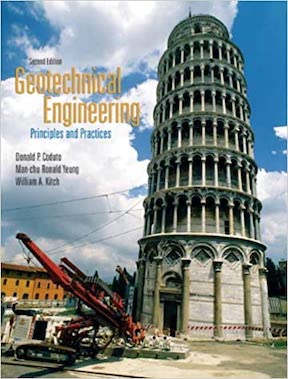
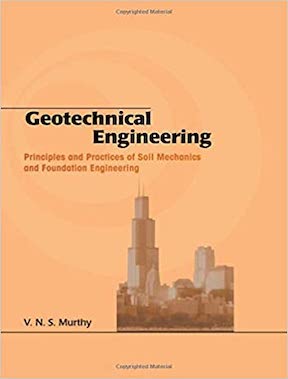
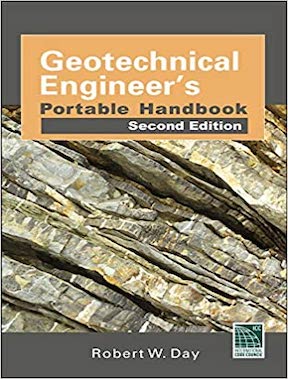
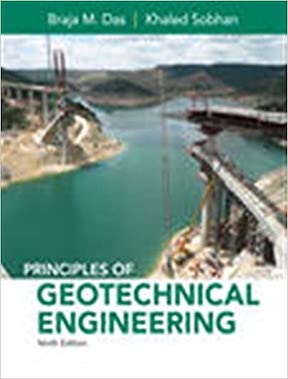
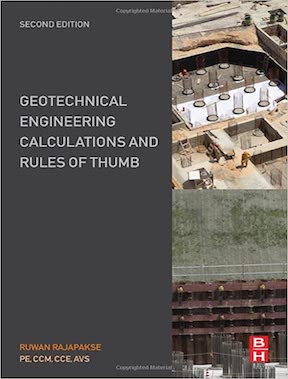
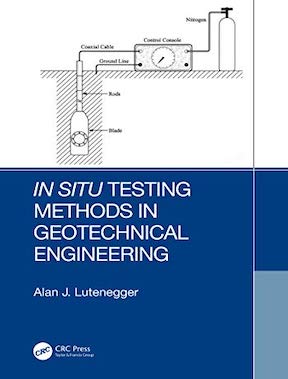
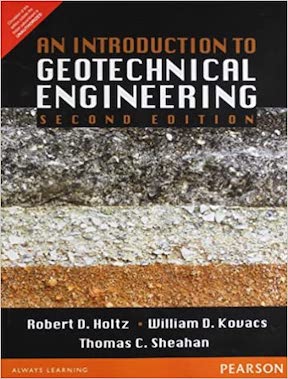
Testimonials
Excellent civil engineering and geotechnical engineering tutors
MEB was the first and last tutoring service I have used. The online tutoring sessions were so helpful that I didn’t even have to look elsewhere after finding them.

Sultan Al Zaabi
Khalifa University, UAE
Affordable tutoring sessions that you will use very often
My Engineering Buddy helped me with civil engineering in general and geotechnical engineering in particular. They charge very reasonably and deliver high value for the fees.

David Bannister
University of Central Florida
Great help for civil engineering students like me
I have nothing but wholesome praise for the excellent tutors at My Engineering Buddy. They taught me so well during my civil engineering course and projects, and I would strongly recommend them to you.

Thomas Campbell
Newcastle University School of Engineering
How it Works?
① Book an awesome tutor
② Pay the fee via PayPal
③ Start getting top scores
How Online Tutoring Works?
① Book an awesome tutor ② Pay the fee via PayPal ③ Start getting top scores
Over 4,000
5-Star Ratings

Best Geotechnical Engineering Tutor
